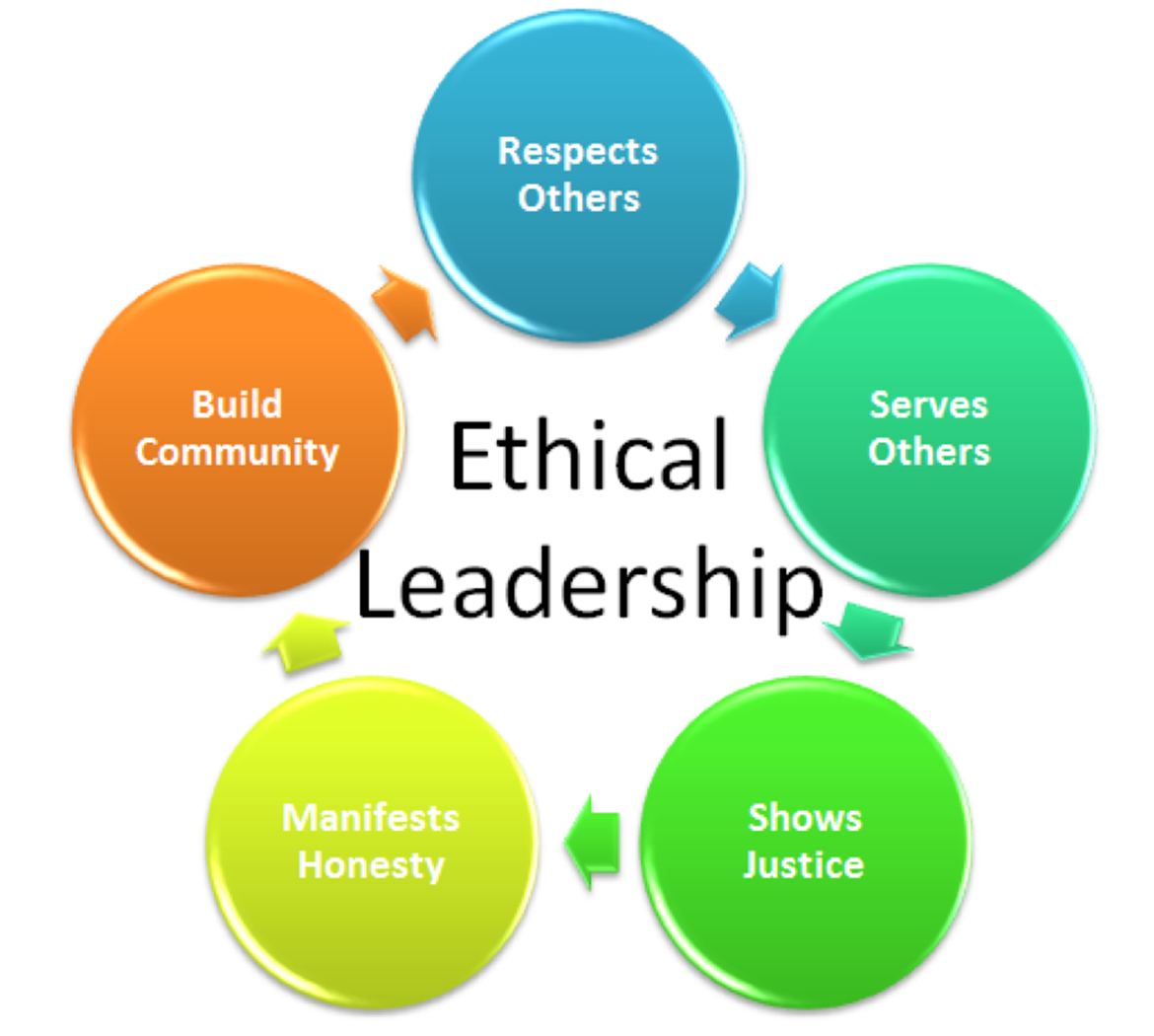Guiding Principles: Nurturing Ethical Leadership for Organizational Success and Social Impact

Understanding Ethical Leadership
Ethical leadership is a cornerstone in shaping the success and integrity of individuals, organizations, and society as a whole. It constitutes a set of principles and values that guide leaders to make decisions and act in a morally upright, transparent, and accountable manner. The significance of ethical leadership has grown exponentially in today's complex and interconnected world, marked by an increasing emphasis on corporate social responsibility, a demand for ethical governance, and the imperative to rebuild trust in institutions.
Ethical Leadership in Practice
The implementation of ethical leadership involves translating ethical principles and values into tangible actions and behaviors:
- Leading by Example: Ethical leaders consistently model ethical behavior and adhere to organizational values. By embodying integrity, accountability, and fairness, they establish a standard for others to follow.
- Ethical Decision-Making: Ethical leaders carefully consider the potential impact of their decisions on all stakeholders. They evaluate alternatives based on ethical principles, prioritizing long-term consequences over short-term gains.
- Transparent Communication: Ethical leaders provide clear guidance on expected conduct, ensuring employees understand the organization's values and ethical code. They foster an environment where employees can voice concerns without fear of reprisal and address these issues transparently and promptly.
- Encouraging Ethical Accountability: Ethical leaders hold themselves and others accountable for ethical conduct. They establish systems to monitor and evaluate ethical behavior within the organization.
- Ethical Organizational Culture: Ethical leaders align policies, procedures, and practices with ethical principles and values. They ensure that ethical considerations are integrated into all aspects of the organization's operations.
- Stakeholder Engagement: Ethical leaders actively seek input and feedback from stakeholders, making decisions that balance the needs of different stakeholders ethically. They recognize the importance of engaging and considering the interests of all relevant parties.

Benefits of Ethical Leadership
Embracing ethical leadership yields numerous benefits for organizations, including improved employee morale, increased trust and loyalty, a positive organizational reputation, attraction and retention of top talent, and stronger relationships with stakeholders.
Ethical Leadership and Stakeholder Management
Ethical leadership and stakeholder management are closely interlinked concepts that emphasize the importance of considering the interests and well-being of all stakeholders in ethical decision-making:
- Stakeholder Recognition: Ethical leaders recognize the significance of identifying all relevant stakeholders, extending beyond traditional groups to include customers, suppliers, local communities, and society at large.
- Ethical Considerations: They take into account the potential impact of decisions on various stakeholders, striving to make choices that are fair, just, and respectful of their rights and interests.
- Transparent Communication: Ethical leaders provide accurate and timely information, actively listening to stakeholder perspectives. They foster trust and long-term relationships crucial for organizational success.
- Responsible Corporate Citizenship: Ethical leaders promote initiatives that benefit stakeholders and society, aligning with principles of environmental sustainability, social responsibility, and ethical business practices.
Ethical Leadership Challenges and Solutions
Ethical leadership faces challenges in practice, but strategic solutions can overcome them:
- Short-Termism and Pressure for Results: Leaders must resist the temptation to prioritize short-term gains over long-term sustainability. Emphasis on ethical decision-making should prevail.
- Complexity and Uncertainty: Ethical leaders navigate ambiguous situations by prioritizing ethical choices amidst conflicting demands through continuous learning and adaptability.
- Globalization and Cultural Differences: Operating across diverse cultural contexts requires ethical leaders to navigate differences and adapt their approach to maintain consistent ethical standards.
- Social Media and Digital Ethics: Ethical leaders address challenges in online platforms, promoting responsible use of technology, privacy protection, and ethical considerations in the digital realm.
- Ethical Fatigue and Moral Ambiguity: Combatting ethical fatigue involves commitment, continuous learning, fostering a supportive ethical culture, and establishing robust systems to encourage and reinforce ethical behavior.
How to Develop and Sustain Ethical Leadership?
Fostering ethical leadership involves a holistic strategy. Current leaders should lead by example, showcasing ethical behavior. Cultivating an environment that encourages critical thinking and ethical reasoning is crucial. Implementing targeted training programs equips leaders with the skills for ethical decision-making. Acknowledging and rewarding ethical behavior reinforces its importance within the organizational culture. Cultural integration is key; creating a workplace that values and celebrates ethical conduct. Regular ethical audits and assessments ensure continuous improvement, identifying areas to fortify ethical practices.
Conclusion
In essence, ethical leadership development requires a collective commitment to ingraining ethical principles into both individual actions and organizational culture. It is not merely a title; it is a responsibility to lead with integrity, inspire others through actions, and contribute to creating a better world through ethical decision-making.
Level up your career with scale.jobs blog! Whether you're job hunting, eyeing a promotion, or just exploring, our blog's got your back. Join us and let's kick your career up a notch. Check out the scale.jobs blog for all the insider tips you need!




